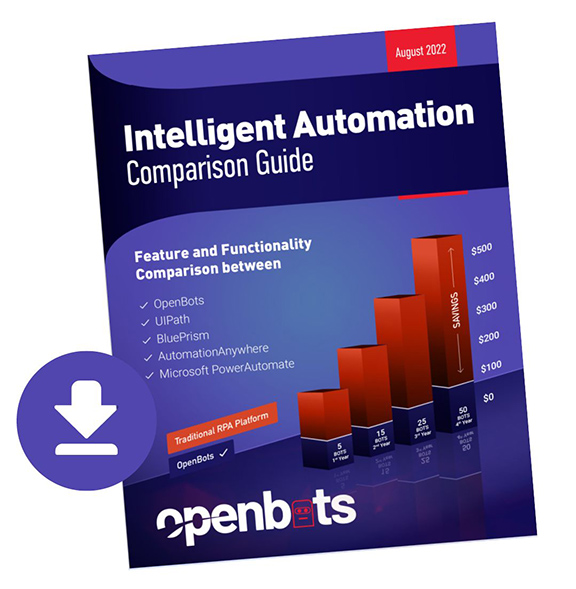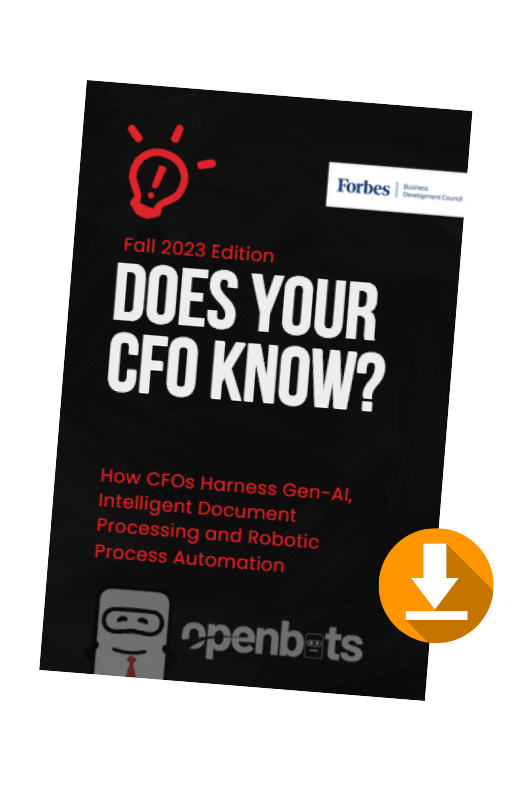FinTech Banking: Utilizing Intelligent Automation to Improve Operational Processes
 by
Gabriel Skelton - February 9, 2023
by
Gabriel Skelton - February 9, 2023
The FinTech industry in banking has been utilizing intelligent automation (IA), to improve various aspects of their operations, including customer service, lending, and compliance and risk processes. IA, which combines artificial intelligence (AI) and machine learning (ML), can be used to automate tasks such as data entry, document processing, and customer service, freeing up human employees to focus on more value-added activities. In this article, we will explore how the FinTech industry in banking has been utilizing IA and provide two examples.
One way in which the FinTech industry in banking has been utilizing IA is to improve customer service. By automating tasks such as answering customer inquiries or processing transactions, FinTech firms can save time and improve efficiency, leading to increased customer satisfaction. For example, a FinTech firm might use IA to automate the process of handling account inquiries or processing loan applications, freeing up staff to focus on more complex tasks such as loan underwriting or risk assessment.
Another way in which the FinTech industry in banking has been utilizing IA is to improve lending processes. By using ML algorithms to analyze data such as credit history, income, and debt-to-income ratio, FinTech firms can more accurately assess the risk of lending to a particular customer. This can help FinTech firms make better lending decisions, leading to improved profits.
For example, a Bank might use IA to analyze data to determine the likelihood of a customer defaulting on a loan, helping the firm make more informed lending decisions and reducing the risk of loan defaults.
In addition, to improve customer service and lending processes, the FinTech industry in banking has also been utilizing IA to improve compliance and risk processes. By automating tasks such as monitoring transactions and identifying unusual activity, FinTech firms can more easily comply with regulations and standards. This can help reduce the risk of compliance issues and improve the firm’s overall risk management. For example, an Insurance Agency might use IA to monitor customer accounts for suspicious activity, such as unusual transactions or patterns of behavior, helping the firm identify and prevent potential fraud.
The FinTech industry in banking has been utilizing IA to improve various aspects of its operations, including customer service, lending, and compliance and risk processes. By automating tasks such as data entry, document processing, and customer service, FinTech firms can save time and improve efficiency, leading to increased customer satisfaction and improved profits.
References:
Benefits of IA for the FinTech industry: https://www.openbots.com/blog/benefits-of-intelligent-automation-for-the-fintech-industry/
Use of IA in lending processes: https://www.openbots.com/blog/how-intelligent-automation-is-transforming-lending-processes/

About Gabriel Skelton
As the Director of Banking & Mortgage Automation Solutions, Gabriel is responsible for creating pre-packaged and customized automation solutions to enable digital transformation for banks, credit unions, and mortgage lenders.
Certified in process discovery & analysis, Gabriel specializes in pairing firms with scalable workflow automation. He has over five years of experience spanning financial services, enterprise technology, and digital transformation.
Gabriel resides in Coral Springs, Florida, with his wife and son.
Recent Posts
Related Blog Posts

Automating Asset and Wealth Management Term Sheets with Enterprise AI
In this article, we’ll cover the practical outcomes of embracing AI, particularly in automating term sheets within platforms such as Salesforce…

Automating Auto Loans: OpenBots Capabilities in Lending Transformation
In this article, we delve into how OpenBots can redefine the landscape of auto lending, from data extraction to decision-making…

Unusual Situations with FinTechs
Kevin Edwards, a seasoned FinTech expert, shares his journey from criminal law trials to guiding financial institutions through regulatory landscapes…





